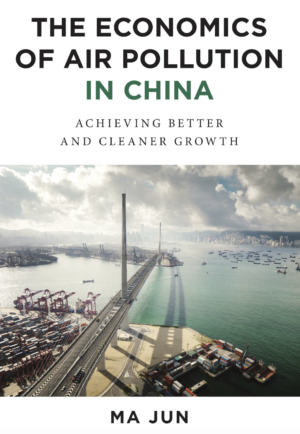- November 29, 2016
The Economics of Air Pollution in China
 In The Economics of Air Pollution in China, leading Chinese economist Ma Jun makes the case that the trade-off between growth and environment is not inevitable. In his ambitious proposal to tackle severe air pollution and drastically reduce the level of so-called PM 2.5 particles―microscopic pollutants that lodge deeply in lungs―Ma Jun argues that in targeting pollution, China has a real opportunity to undertake significant structural economic reforms that would support long-term growth. Rooted in rigorous analyses and evidence-based projections, Ma Jun’s “big bang” proposal aims to mitigate pollution and facilitate a transition to a greener and more sustainable growth model. The Economics of Air Pollution in China is a Paulson Institute book, published by Columbia University Press and edited in English by Damien Ma.
In The Economics of Air Pollution in China, leading Chinese economist Ma Jun makes the case that the trade-off between growth and environment is not inevitable. In his ambitious proposal to tackle severe air pollution and drastically reduce the level of so-called PM 2.5 particles―microscopic pollutants that lodge deeply in lungs―Ma Jun argues that in targeting pollution, China has a real opportunity to undertake significant structural economic reforms that would support long-term growth. Rooted in rigorous analyses and evidence-based projections, Ma Jun’s “big bang” proposal aims to mitigate pollution and facilitate a transition to a greener and more sustainable growth model. The Economics of Air Pollution in China is a Paulson Institute book, published by Columbia University Press and edited in English by Damien Ma.
Stay Updated with MacroPolo
Get on our mailing list to keep up with our analysis and new products.
Subscribe

